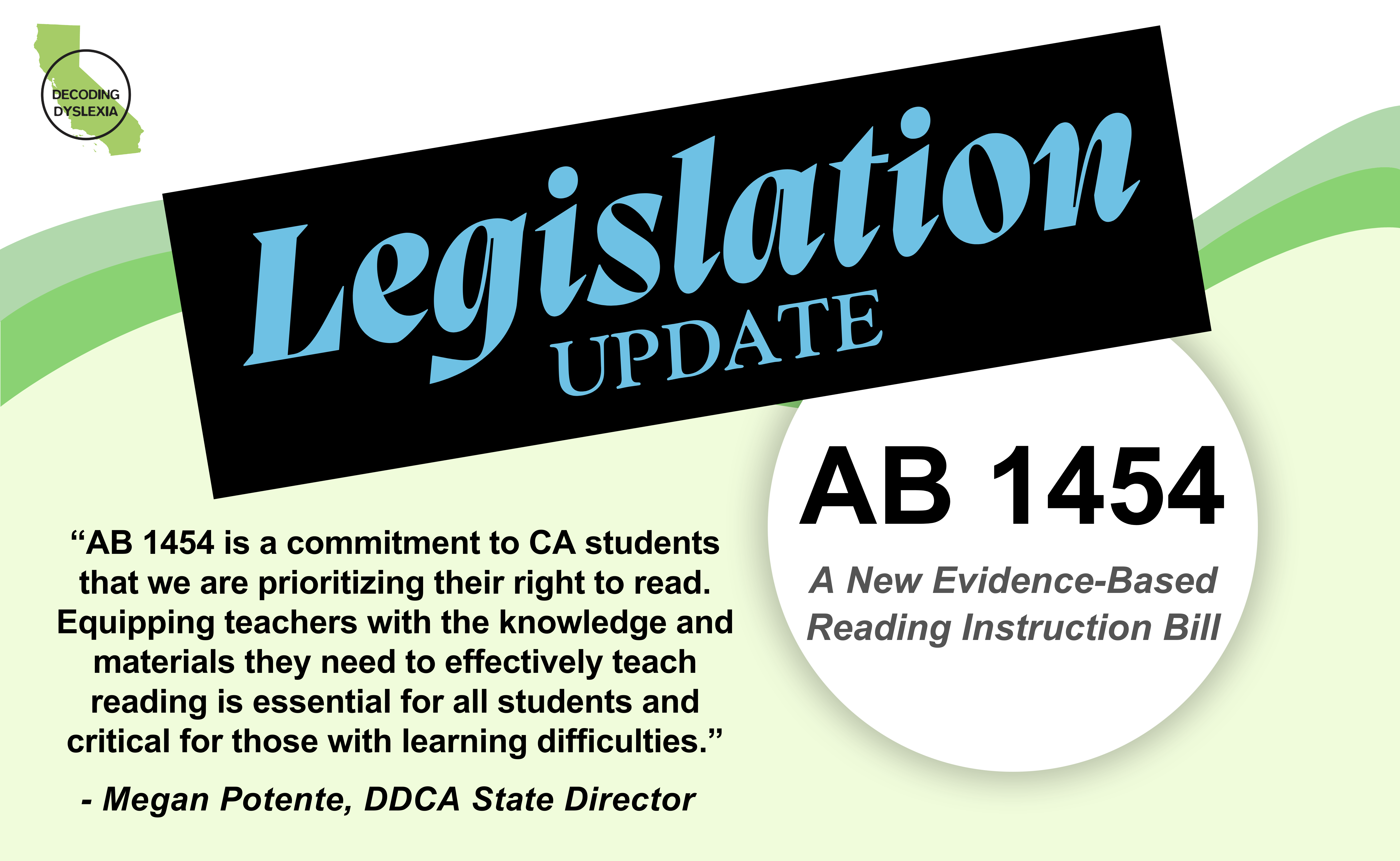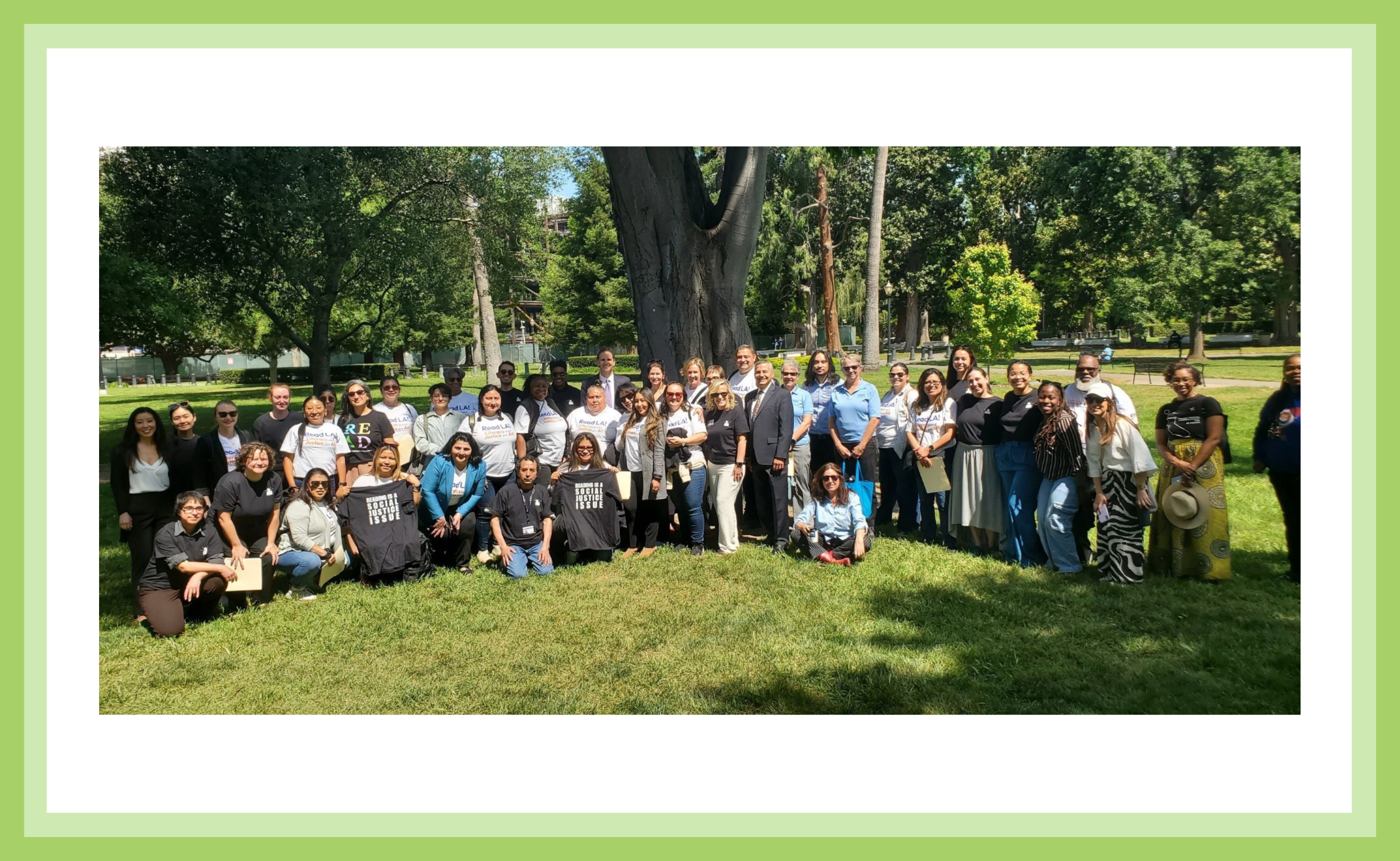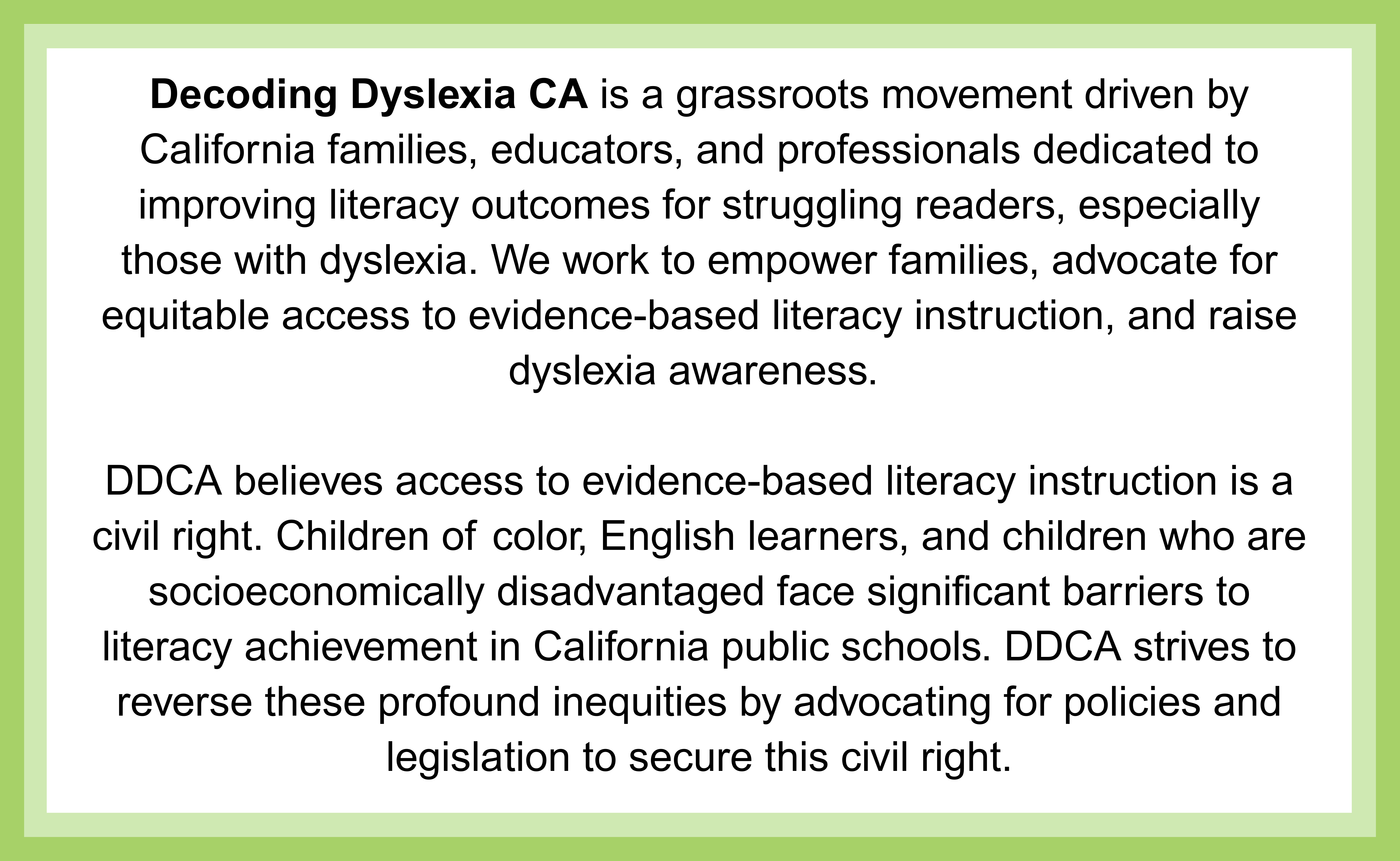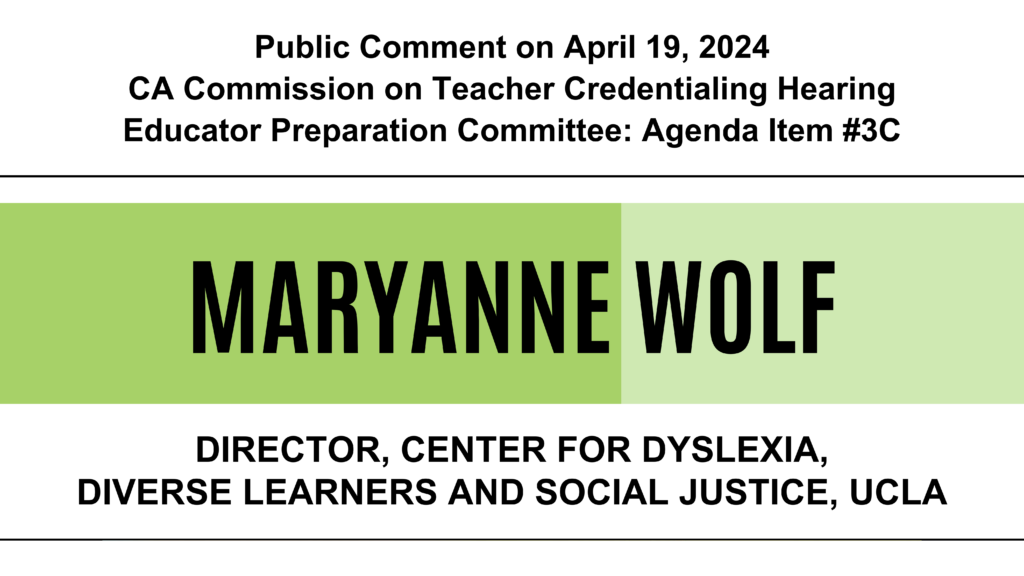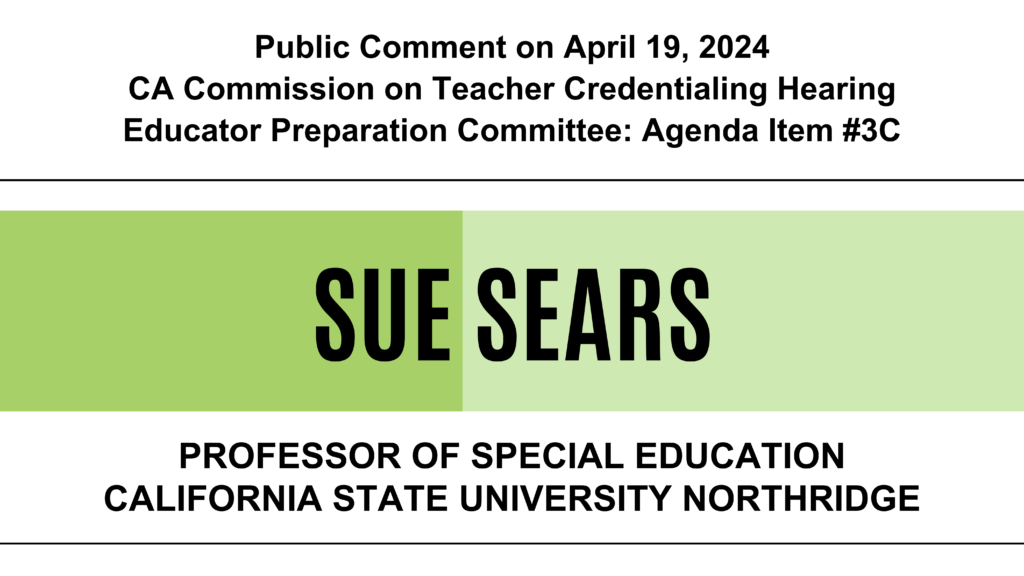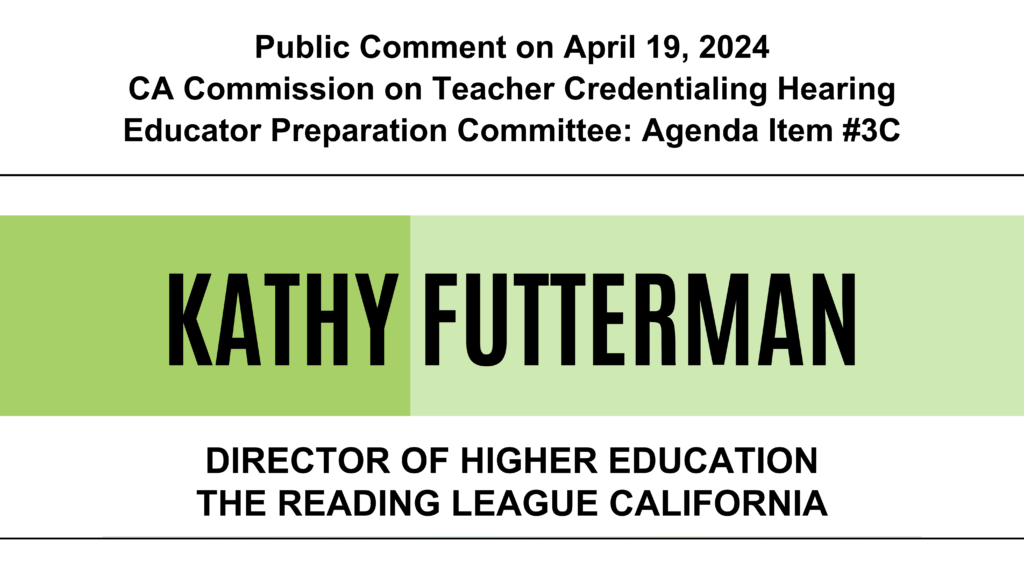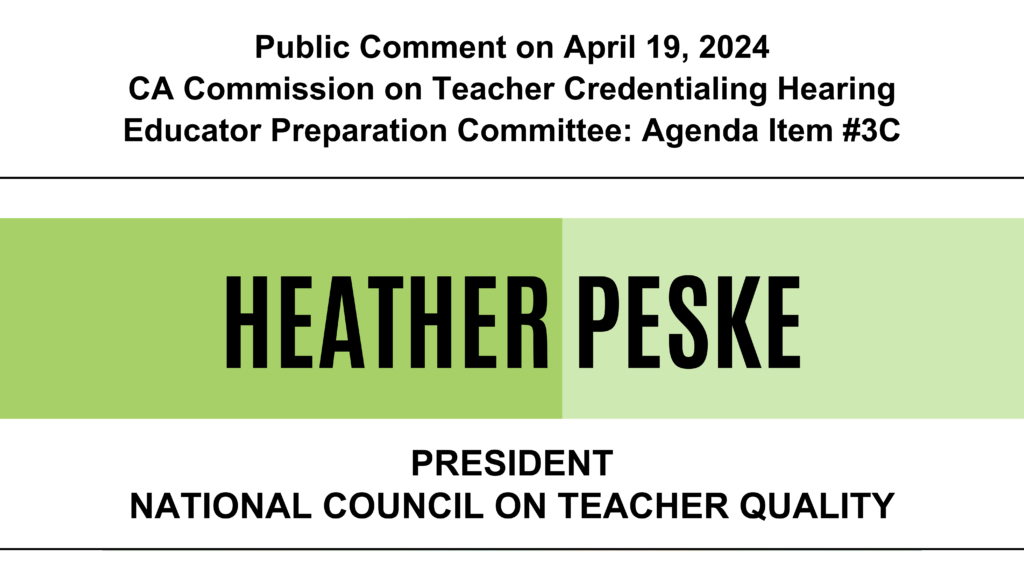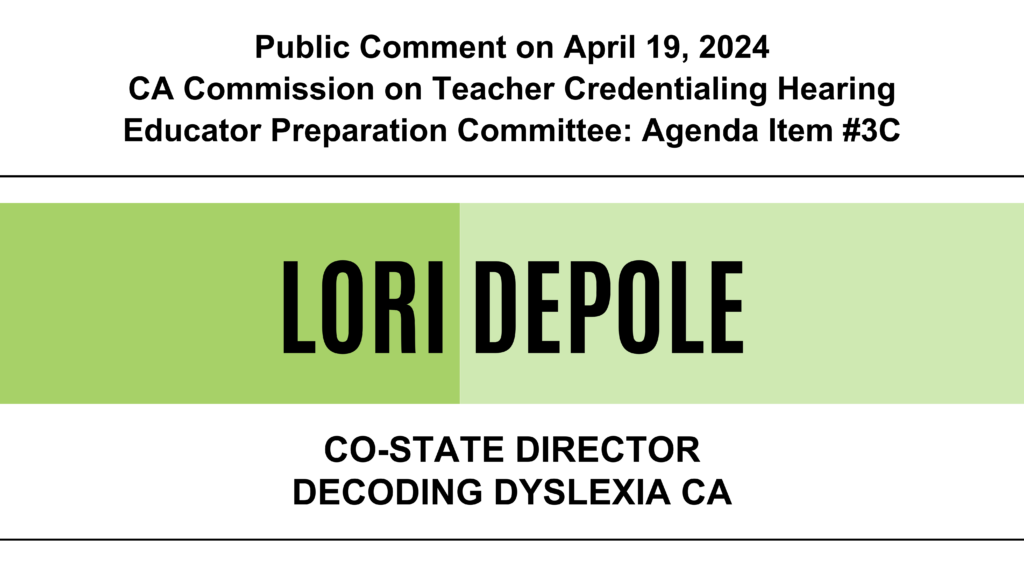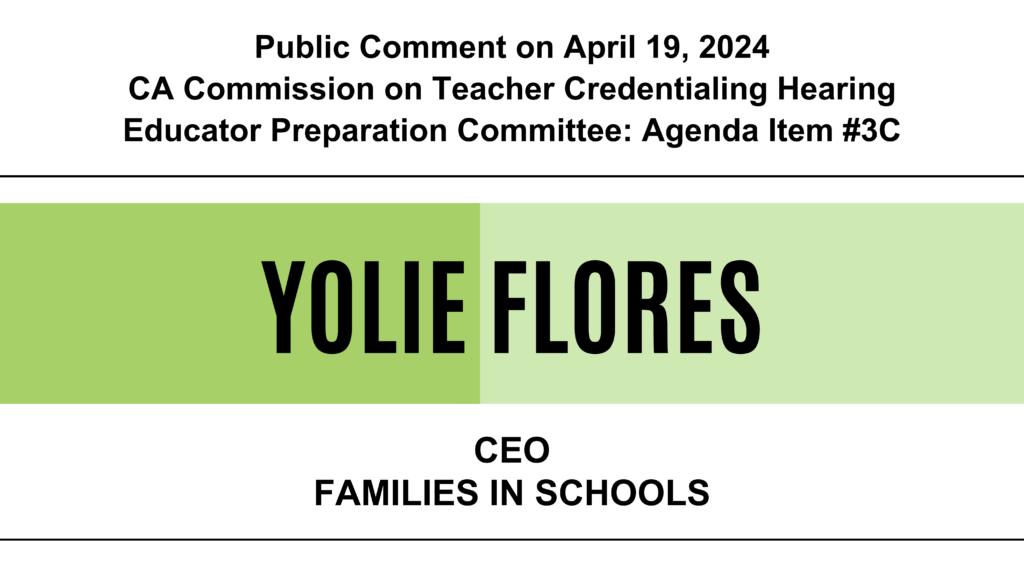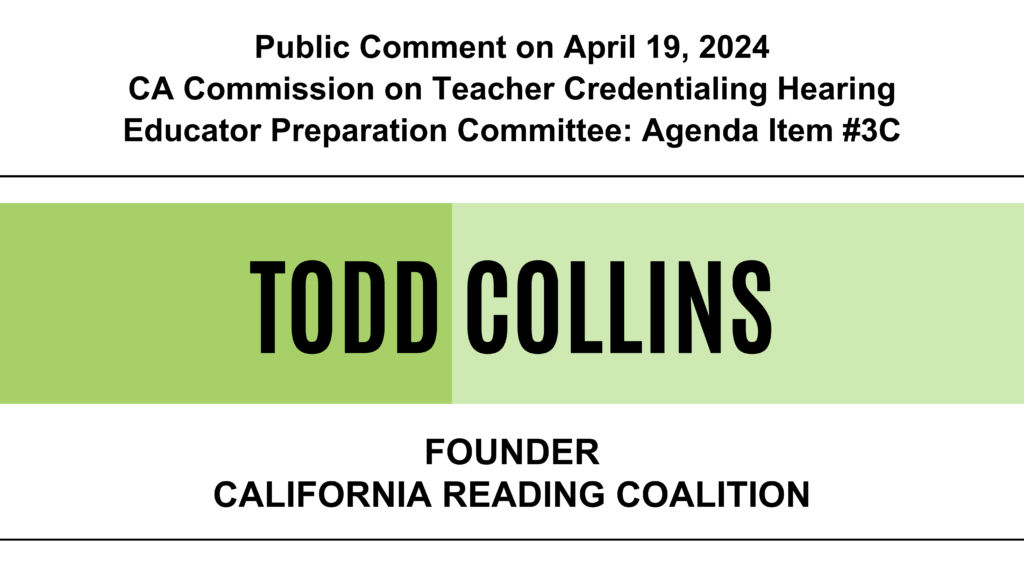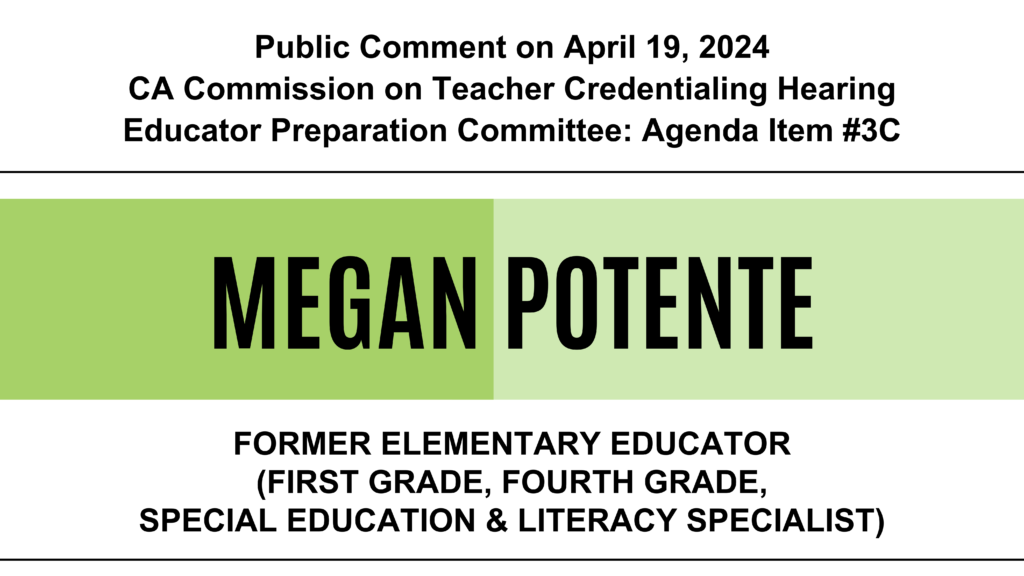The compromise bill passed unanimously in the Assembly Education Committee on April 30th.
After several weeks of negotiations, AB 1454 (Rivas) has been amended to reflect a consensus between literacy bills AB 1121 (Rubio) and AB 1194 (Muratsuchi). While the compromise bill doesn’t include everything we had hoped for, we feel it is a huge step forward for literacy in our state. DDCA thanks Speaker Robert Rivas, Assemblywoman Blanca E. Rubio, and Assemblymember Al Muratsuchi for collaborating to co-author AB 1454.
In summary, AB 1454:
- Requires the California Department of Education (CDE) to identify and post on its website a list of inservice professional development programs for effective literacy instruction for training certificated and classified staff who provide reading instruction, or who support any teacher who provides reading instruction in transitional kindergarten through 5th grade;
- Requires the CDE, contingent upon appropriation, to apportion funds to Local Education Agencies for professional development using one of the identified programs;
- Requires the State Board of Education to conduct a follow-up instructional materials adoption for English language arts and English language development;
- Requires professional development and instructional materials to include the requirements in current law regarding evidence-based means of teaching foundational reading skills in print concepts, phonological awareness, phonics and word recognition, and fluency to all pupils, including tiered supports for pupils with reading difficulties, English learners, and pupils with exceptional needs;
- Requires the professional development and instructional materials to be aligned to the Commission on Teacher Credentialing’s (CTC) teaching performance expectations, the English Language Arts/English Language Development Framework, and the California Dyslexia Guidelines;
- Requires the CTC to ensure that the program standards for the professional preparation of candidates for an administrative services credential include preparation on how to support teachers in delivering instruction through effective means for teaching literacy.
Details can be found in the AB 1454 Bill Analysis and you can watch the hearing at this link (AB 1454 begins around the 2:10 mark). We thank the over 50 advocates who traveled from across the state to attend the rally, hearing, and mini-lobby day. It was an inspirational day!
What’s the story of AB 1454?
The weeks approaching the April 30th hearing were almost a repeat of the year prior, when AB 2222, the comprehensive early literacy bill co-sponsored by DDCA in 2024, was not scheduled for a hearing. Following opposition from California Teachers Association and Californians Together, Speaker Robert Rivas asked the AB 2222 sponsors to return in 2025 after working with opposing groups.
A new version of the bill, AB 1121 (Rubio), was introduced in February 2025. In the days leading up to the deadline, negotiations between lawmakers, the bill co-sponsors DDCA, EdVoice, Families In Schools, the NAACP California-Hawaii State Conference, and several opposing groups intensified until a compromise was reached hours before the deadline.
Assemblywoman Blanca Rubio, the author of AB 1121, said at the hearing that negotiating the compromise was “by far, the hardest thing that I have ever done in nine years as a legislator.”
The next hearing for AB 1454, before the Assembly Appropriations Committee, will be scheduled in the coming weeks. We are now focused on making sure this bill is adequately funded!
Why is this bill important?
As parents of dyslexic children and professionals who work with struggling readers, we know the solution to reading failure is teachers equipped with the tools necessary to deliver evidence-based instruction. Beginning in the 2025-26 school year, as a result of the new universal screening law, which DDCA worked towards for many years, all kindergarten through grade 2 students will be screened annually for risk of reading difficulties. Now that students will be identified as showing signs of struggle in the early grades, teachers need to be prepared to support students’ needs. AB 1454 addresses this knowledge gap.
Since we got started thirteen years ago, DDCA has been laser-focused on improving reading outcomes for California’s millions of public school students, especially for the approximately 930,000 students with dyslexia. Students with dyslexia are uniquely susceptible to poor instruction and experience the effects of poor instruction the most profoundly, with severe consequences. AB 1454 aims to improve access to evidence-based instruction delivered by well-prepared teachers, which benefits all students and is critical to the success of students with dyslexia.
AB 1454 has the potential to uplift reading outcomes for millions of California students. Join us to see it through the next steps, and all the way to its success!

